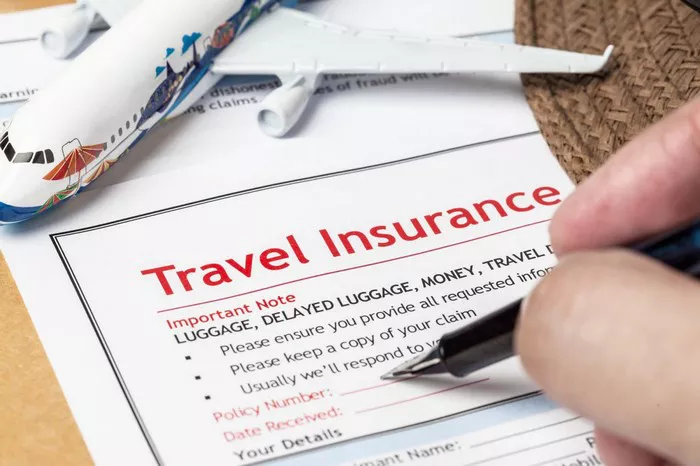When you find yourself in a situation where you need to cancel your current car insurance, it is crucial to understand the proper steps and considerations involved. This article will guide you through the process of cancelling your car insurance policy, providing detailed information to ensure that you handle the cancellation smoothly and effectively.
Understanding Car Insurance Cancellation
Cancelling a car insurance policy may seem like a straightforward task, but it involves several important steps and considerations. Here, we will break down the process into manageable steps, highlighting key aspects you need to be aware of.
Reasons for Canceling Your Car Insurance
There are various reasons why you might decide to cancel your car insurance policy. Understanding these reasons can help you navigate the cancellation process more effectively.
Switching Insurance Providers
One common reason for cancelling a car insurance policy is switching to a new insurance provider. This could be due to finding a better rate or better coverage options with another company.
Selling Your Vehicle
If you are selling your car, you will need to cancel your insurance policy for that vehicle. It is important to ensure that the policy is cancelled promptly to avoid unnecessary charges.
Ending Vehicle Use
In cases where you no longer need your vehicle or it is no longer in use, cancelling the insurance policy becomes necessary. This often applies to vehicles that are being stored or are no longer operational.
Financial Reasons
Sometimes, financial constraints might force you to cancel your car insurance policy. While this is not ideal, it is important to consider the implications and ensure that you are covered during any potential gap in coverage.
Steps to Cancel Your Car Insurance
To cancel your car insurance policy, follow these steps to ensure that the process is completed correctly.
Review Your Policy Terms
Before proceeding with cancellation, review your policy terms to understand the conditions and any potential penalties associated with cancelling. This will help you avoid unexpected fees and ensure that you follow the correct procedures.
Contact Your Insurance Provider
Reach out to your insurance provider to inform them of your decision to cancel your policy. This can typically be done via phone, email, or through your provider’s online portal. Be prepared to provide your policy number and any other relevant information.
Submit a Cancellation Request
Most insurance companies require a formal cancellation request to process the cancellation. This may involve filling out a specific form or sending a written request. Ensure that you follow your provider’s instructions to avoid delays.
Obtain Confirmation
After submitting your cancellation request, request confirmation of the cancellation from your insurance provider. This confirmation will serve as proof that your policy has been cancelled and can be important for your records.
Check for Refunds
If you have paid your premium in advance, check if you are entitled to a refund for the unused portion of your coverage. Your insurance provider should provide information on how and when you will receive any applicable refunds.
Update Your Records
Once your policy is cancelled, update your records to reflect the change. This includes removing the insurance information from your vehicle’s registration and informing any relevant parties of the cancellation.
See Also: Car Insurance: What to Do After an Accident?
Considerations Before Cancelling Your Policy
Before cancelling your car insurance policy, consider the following factors to ensure that you make an informed decision.
Coverage Gap
Cancelling your car insurance policy without securing new coverage can leave you with a coverage gap. It is essential to arrange for new insurance before cancelling your existing policy to avoid being uninsured.
Legal Requirements
In many jurisdictions, maintaining car insurance is a legal requirement. Ensure that you comply with local regulations to avoid potential legal issues or fines.
Impact on Future Insurance Rates
Cancelling your policy and having a lapse in coverage can impact your future insurance rates. Insurance companies may view a lapse in coverage as a risk factor, potentially leading to higher premiums when you seek new insurance.
Policy Cancellation Fees
Some insurance providers charge cancellation fees for terminating a policy before the end of the term. Review your policy for any such fees and factor them into your decision-making process.
Alternative Options to Cancellation
If you are considering cancelling your car insurance policy, you may also explore alternative options that could better suit your needs.
Policy Adjustment
Instead of cancelling, you might consider adjusting your policy. This could involve reducing coverage or changing your deductible to lower your premiums without fully terminating the policy.
Temporary Suspension
In cases where you are not using your vehicle for an extended period, you might be able to suspend your coverage temporarily. This can be a cost-effective option if you plan to resume driving the vehicle in the near future.
Shop for Better Rates
If the primary reason for cancellation is the cost, consider shopping around for better rates before making a final decision. Comparing quotes from different insurance providers might help you find a more affordable policy that meets your needs.
Conclusion
Cancelling your car insurance policy involves several important steps and considerations. By understanding the process and following the necessary procedures, you can ensure a smooth cancellation experience. Remember to review your policy terms, contact your insurance provider, and consider any potential impacts on your coverage and future insurance rates. Whether you are switching providers, selling your vehicle, or facing financial constraints, being informed and prepared will help you navigate the cancellation process effectively.






















